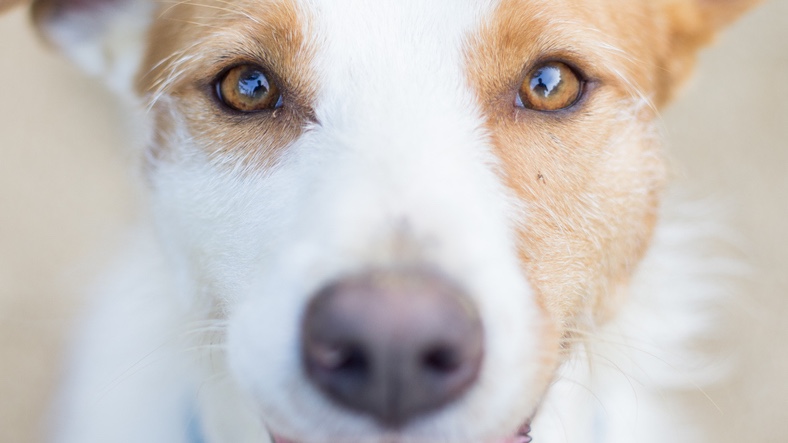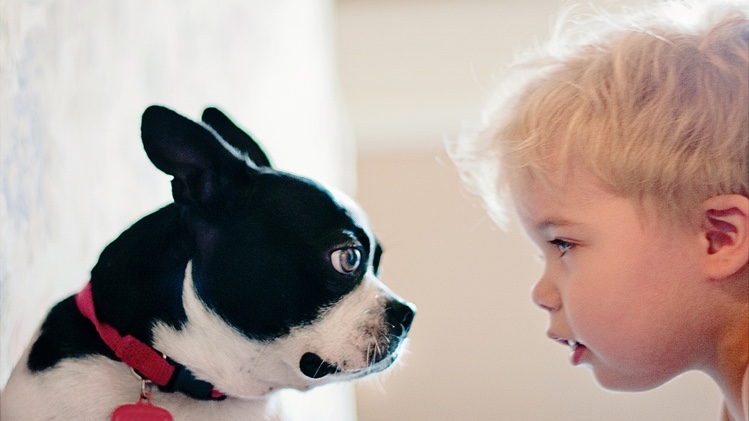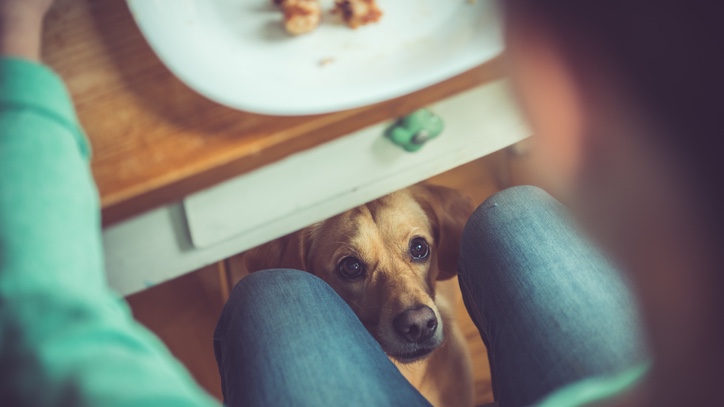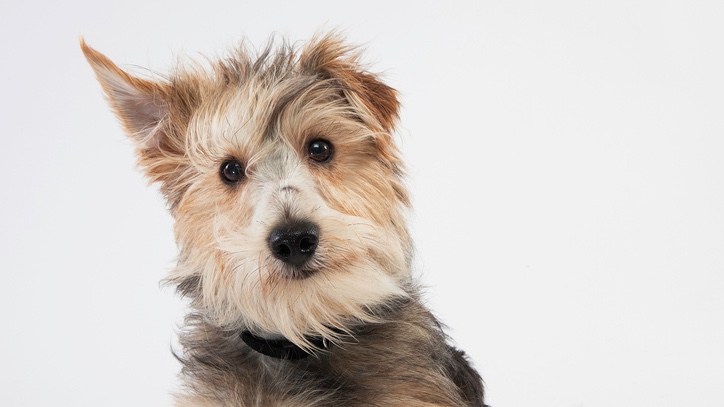Why does my dog stare at me?
Pondering “why does my dog stare at me?” as those eyes bear down? Time to find out!

Get the best advice, tips and top tech for your beloved Pets
You are now subscribed
Your newsletter sign-up was successful
Ever wondered “why does my dog stare at me?” as your pooch intensely fixes their eyes on you? It feels as though they are trying to capture every move you make and can be slightly unnerving – after all, it's a form of communication that, among humans, could see us running a mile.
Yet a dog's stare is not as creepy as you may imagine. Yes, there's something happening within that clever, canine brain but eye contact is not necessarily a sign of aggression (in fact, it is rarely that). And it might not be due to the fact that your pockets are full of the best dog treats!. The key is to consider the context when trying to unlock the hidden code of those steely stares.
Dogs are body language experts
There is one thing we need to stress right from the start: our pooches are far better at reading us than we are at understanding them. Studies have shown that dogs can figure out how we are feeling and they have an uncanny awareness of human emotions as well as a great grasp of words.
Dogs know when we are happy, sad, angry, fearful, and surprised and they learn a lot of this by studying us intently. Those stares are often part of a fact-finding mission to read human body language, looking for non-verbal clues that let them better work out what we're going to do next.
It's this level of scrutiny that ensures a dog knows what you're asking of it. The staring, in this instance, is merely a canine awaiting a cue. The better-trained dogs are, the more chance they will stare as they watch out for a signal.

Dogs also love us very much
More than that, the stares help dogs form a bond, particularly if you are gazing back. Although staring at dogs is actually considered threatening and rude by them, another study, by Miho Nagasawa of Azabu University in Japan, discovered that a mutual gaze is hugely appreciated.
At one point, it was thought only humans benefited from this. The levels of oxytocin, or the “cuddle hormone”, were higher in the urine of those dog owners who shared a long mutual gaze than in those who only engaged in shorter ones.
Get the best advice, tips and top tech for your beloved Pets
But in 2015, Nagasawa found that oxytocin levels rose in dog urine too. For anyone who has ever doubted that a dog can actually love a human, this may have come as a surprise. For the rest of us, it merely confirmed what we also suspected. In that sense, the stares are quite cute, rather than creepy.

Dogs still want something from us
But don't think that a stare is always a declaration of love. It's a bit more complex than that. If you've ever sensed that your dog is staring at you when you're eating, for instance, then that's a clear and concise way of communicating that they want some of what you're having.
At the very least, they want to fill their tummies with the best dog food. In this instance, you may want to learn how to stop dogs from begging for food, otherwise, it could become a problem.
Similarly, dogs may have discovered that a stare is a good way of catching your attention. Just as you may enquire why a fellow human is staring at you (unless you're running a mile), your curiosity will be naturally piqued when your fur pal is displaying the same behavior.
Dogs aren't daft! They have worked out that a stare makes you inquisitive and that it could lead to you taking them for a walk or grabbing the best dog toys to start playing.

Dogs don't know everything, though
Trouble is, humans are complex creatures. We don't always know what makes each other tick, so we can't expect our magical mutts to understand everything we do either. So if you do something out of the ordinary, such as suddenly start dancing when you've never done that before, then dogs are more likely to stare because they are confused. They don't know what is coming next and they can't work out how they are supposed to react to the situation. Yes, they are baffled.
Confusion can also manifest itself in different ways. As well as tilting their head to the side and maybe lifting one of their ears (something that tends to accompany confused stares), dogs may also display signs of anxiety, lick their lips or pay greater attention to their environment, panting with their ears held back. Understanding how to reduce separation anxiety in dogs may help.
How to stop a dog from staring
There are times when a dog's stare is a sign of aggression. Dogs will stare in each other's eyes before they engage in a fight, for instance, and it's a way of displaying dominance. So check a pooch's overall body language, making sure it's nice and relaxed because a still, stiff stance is a certain sign of an imminent problem. In this instance, you need to know how to tackle dog aggression.
You can, however, also teach dogs not to stare as much, in general. Try not to reward staring: for example, if you find those eyes are bearing down while you tuck into your own meal, resist passing them some tasty morsels, otherwise your dog will repeat this trick again and again. Teach them other ways to show they are hungry or fancy a potty break – at least that way you'll have a clearer idea of what they want.
Learn to spot signs of illness
Staring can also be a sign that something is wrong. A change in behavior, such as staring that goes on for too long, could be an indication that your pooch is ill or injured so watch out for the signs that your dog needs a vet. It could be due to Canine Cognitive Dysfunction (CCD) – something that affects dogs as they age.
In 2021, a study found walkies help prevent dog dementia which, aside from staring, can cause a dog to have learning and memory problems, mood swings, disrupted sleep patterns, and a loss of spatial awareness. If your dog is staring at nothing, then you should seek the advice of a veterinarian.

David Crookes has been a journalist for almost 30 years and he has written for a host of magazines, newspapers, websites and books including the World of Animals Annual, BBC Earth, Live Science, The Independent and Tom’s Guide.
Born in England, he lives with two cats but he’s also keenly interested in the differences between the huge number of dog breeds – in fact, you can read many of his breed guides that he’s written in collaboration with vets here on PetsRadar.
With a lifelong passion for technology, too, he’s always on the lookout for useful devices that will allow people to keep their pets happier and healthier, and provide them more time to spend together.
David has a degree from Durham University, as well as postgraduate diploma in journalism from the University of Central Lancashire.
